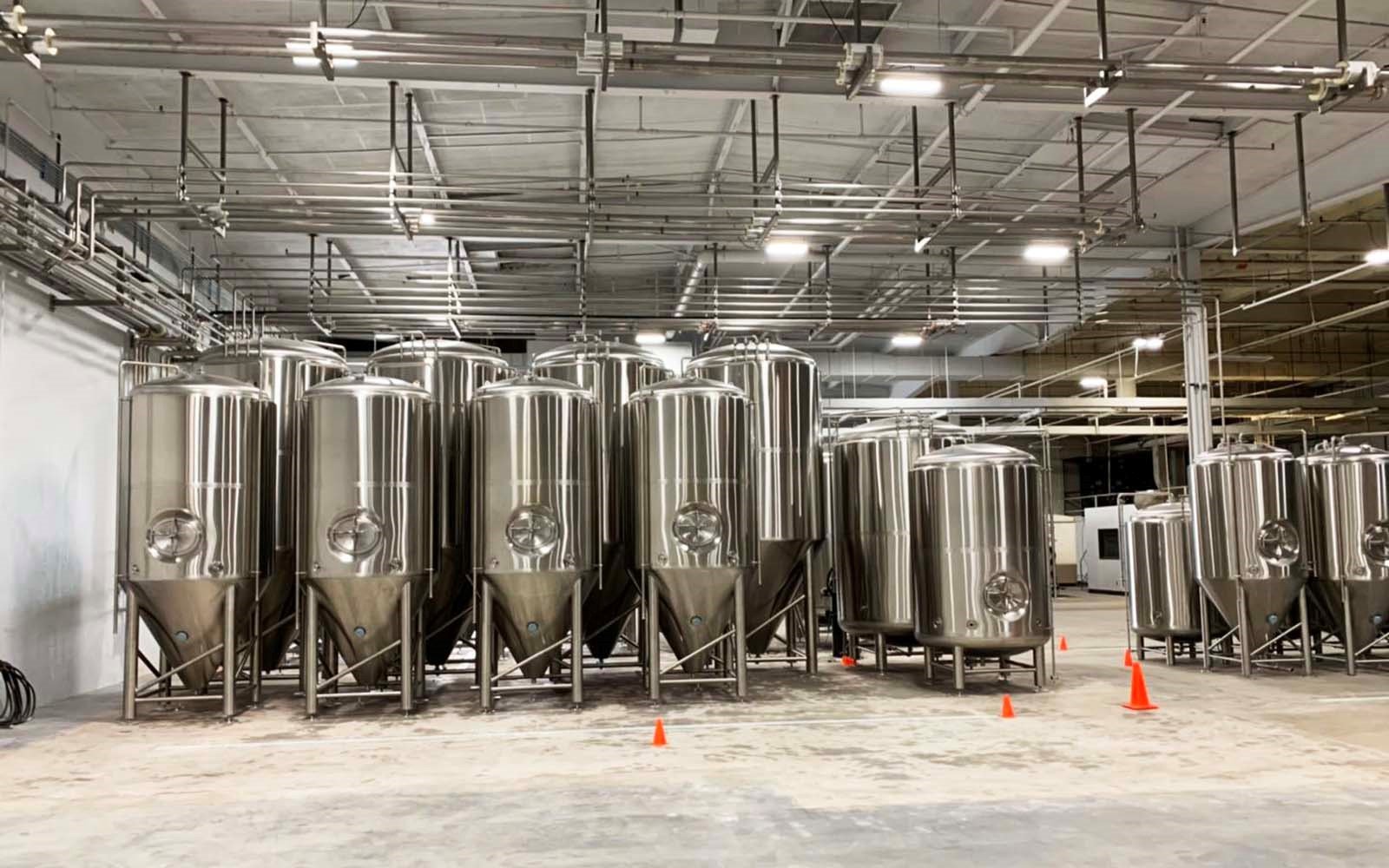What are the aspects of micro brewery startup cost
Introduction
Are you a beer enthusiast with a passion for crafting unique brews? If so, the idea of starting your own micro brewery might have crossed your mind more than once. Micro breweries have been gaining immense popularity in recent years, offering consumers a refreshing alternative to mass-produced beers. However, embarking on this entrepreneurial journey requires careful planning and financial consideration. In this article, we will delve into the world of micro brewery startup cost and explore the essential steps and costs involved in turning your beer dreams into reality.
Understanding the Micro Brewery Concept
What is a Micro Brewery?
Before we dive into the micro brewery startup cost, let’s understand what a micro brewery really is. A micro brewery is a small-scale brewing operation that produces limited quantities of handcrafted beer. Unlike large commercial breweries, micro breweries focus on quality, innovation, and the art of brewing. They often cater to a niche market, offering unique flavors and brews that cater to specific tastes.
The Appeal of Micro Breweries
Micro breweries have witnessed a surge in popularity due to several factors. Consumers are increasingly seeking authentic and locally produced products, and micro breweries fit perfectly into this trend. Additionally, the craft beer movement has gained momentum, with enthusiasts actively seeking out new and exciting flavors.
Market Trends and Opportunities
The craft beer market has experienced significant growth, presenting lucrative opportunities for micro breweries. We’ll explore the current market trends and areas where your micro brewery can make a mark.
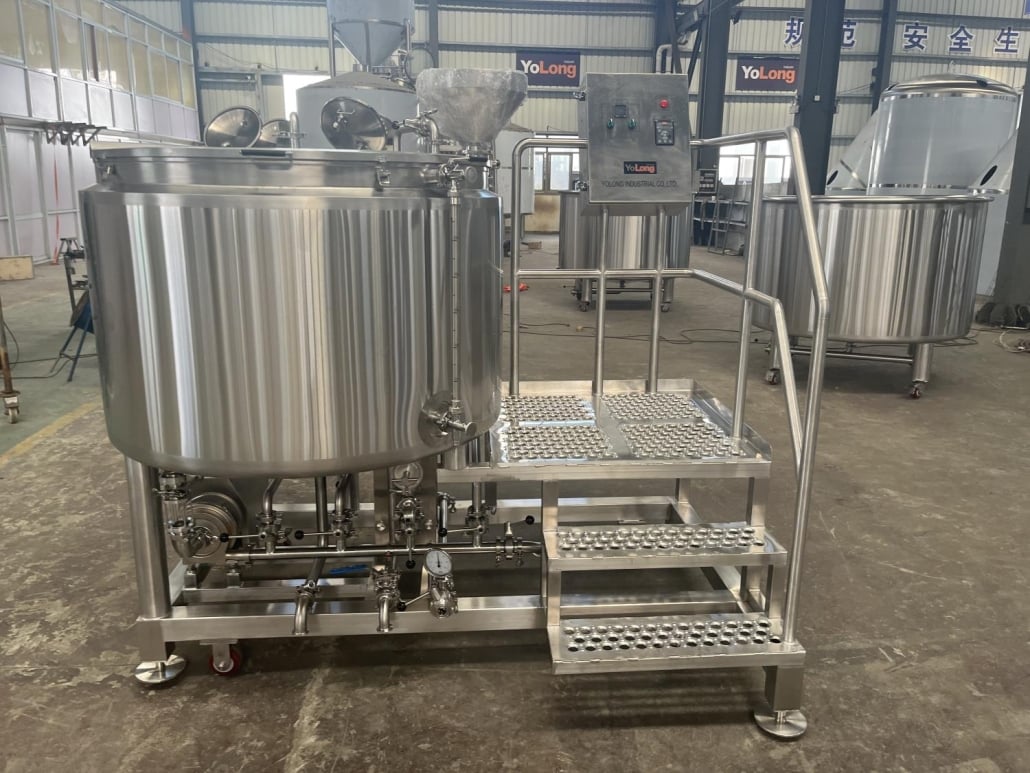
Essential Microbrewery Equipment Guide
Brewing beer isn’t just mixing ingredients and waiting – it’s a scientific, step-by-step process. And to get it right, you need the right tools.
Equipment Overview
| Equipment Type | Purpose | Details |
|---|---|---|
| Mash Tun | Where grains are mixed with hot water | Converts starch into sugars for fermentation |
| Brew Kettle | Boils wort and hops | Sanitizes the beer and enhances flavor |
| Fermenter Tanks | Where yeast ferments sugars into beer | Available in different sizes (3-15 bbls) |
| Bright Tanks | Final conditioning and carbonation | Prepares beer for packaging |
| Cooling System | Chills the beer after boiling | Includes glycol chillers or heat exchangers |
| Pumps and Pipes | Transport liquids between equipment | Food-grade stainless steel is recommended |
| Kegs or Bottling Lines | Stores and packages the beer | Choose based on your business goals |
Choosing Equipment by Brewery Size
The equipment you choose depends largely on your brewery size and production goals. Here’s a rough guide:
| Production Capacity | Ideal Equipment Size | Space Needed | Cost Estimate |
| 3-5 barrels (small) | Compact fermenters | 500-1,000 sq. ft. | $50,000 – $100,000 |
| 10 barrels (medium) | Standard-sized tanks | 1,500-3,000 sq. ft. | $100,000 – $250,000 |
| 15+ barrels (large) | Industrial systems | 3,000+ sq. ft. | $250,000 – $500,000+ |
Where to Buy Microbrewery Equipment?
| Supplier | Equipment Type | Price Range |
| Ss Brewtech | Fermenters, Brew Kettles | $5,000 – $50,000 |
| Blichmann Engineering | Small-Scale Systems | $1,500 – $30,000 |
| ProBrew | Large Industrial Equipment | $50,000 – $500,000+ |
| Alpha Brewing Ops | Turnkey Brewing Systems | $100,000 – $300,000 |
Want to save money? Consider purchasing second-hand equipment or leasing systems as a cost-effective option.
The Brewing Process: How a Microbrewery Operates
Here’s a breakdown of the brewing process, step by step:
1. Malting
Grains (usually barley) are soaked, germinated, and dried to create malt. This provides the base starch for beer.
2. Mashing
Malt is mixed with hot water in the mash tun. The heat activates enzymes, breaking down starches into sugars. This sugary liquid is called wort.
3. Boiling
Wort is transferred to the brew kettle, where hops are added for flavor and bitterness. The boiling process sterilizes the wort.
4. Cooling
The hot wort is rapidly cooled using a glycol chiller or heat exchanger to prepare it for fermentation.
5. Fermentation
Wort is transferred to fermenters, where yeast is added. Yeast consumes sugars, converting them into alcohol and CO2. This stage takes 1-2 weeks.
6. Conditioning
The beer is moved to bright tanks for carbonation and final conditioning. It’s clarified and tested for quality.
7. Packaging
Finally, the beer is kegged, bottled, or canned for distribution. Microbreweries often opt for kegs to supply local bars and taprooms.
Essential Components of micro brewery startup cost
Now that we have a clear understanding of the micro brewery concept, let’s explore the crucial components you need to address when setting up your own micro brewery.
Location and Space Considerations
Choosing the right location is paramount for the success of your micro brewery. We’ll discuss factors to consider when selecting a suitable space for your venture.
Brewing Equipment and Supplies
The heart of any micro brewery lies in its brewing equipment. We’ll walk you through the essential brewing equipment and supplies you’ll need to kickstart your operations.
Licensing and Legal Requirements
Navigating the legal landscape is vital for running a compliant micro brewery. Learn about the licenses and permits you need to operate your brewery smoothly.
Staffing and Training
A well-trained and passionate team is essential for creating exceptional beer. We’ll discuss hiring the right staff and providing them with the necessary training.
Calculating micro brewery startup cost
One of the most critical aspects of starting a micro brewery is understanding the expenses involved. Let’s break down the startup costs into various categories.
Equipment Costs
Investing in the right brewing equipment is a significant upfront expense. We’ll provide insights into the costs associated with purchasing or leasing brewing machinery.
Licensing and Permit Costs
Complying with legal requirements often comes with costs. Discover the fees involved in obtaining the necessary licenses and permits for your micro brewery.
Rental and Utilities Expenses
Securing a suitable location and managing utility bills add to your startup costs. Learn how to budget for these recurring expenses.
Marketing and Promotion Budget
To succeed in a competitive market, marketing is crucial. We’ll guide you on allocating a budget for effective marketing and promotion strategies.
Miscellaneous Costs
There are various other expenses you need to factor in. From insurance to initial raw material costs, we’ll help you create a comprehensive budget.
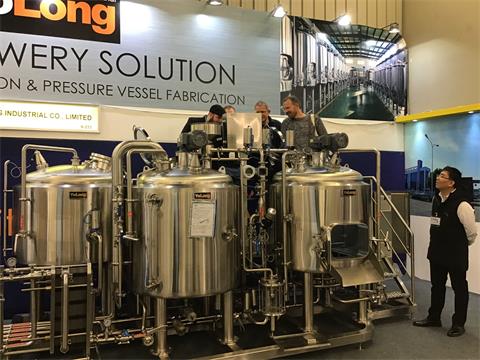
Funding Your Micro Brewery
Self-Financing Options
Many micro brewery entrepreneurs opt for self-financing. We’ll explore ways to fund your venture using your savings or personal resources.
Bank Loans and Financing
Traditional financing from banks is a common route for funding a micro brewery. Understand the loan options and requirements for securing funding.
Attracting Investors
Investors can inject capital into your brewery and help accelerate growth. Learn how to attract investors and present a compelling business proposal.
Crowdfunding and Community Support
Crowdfunding has emerged as an innovative way to raise funds and involve the community. Discover how to run a successful crowdfunding campaign.
Overcoming Challenges in a Competitive Market
The craft beer market can be highly competitive. Let’s explore how you can overcome challenges and stand out in the crowded landscape.
Differentiation and Niche Selection
Setting your micro brewery apart from others is crucial. We’ll discuss the importance of finding your niche and developing a unique selling proposition.
Quality Control and Consistency
Consistency in beer quality is essential for building a loyal customer base. Learn how to maintain high-quality standards in your brewing process.
Building a Brand Identity
Establishing a strong brand identity is vital for brand recognition. Discover branding strategies that resonate with your target audience.
Distribution and Sales Strategy
Effective distribution and sales strategies are key to reaching a broader market. We’ll explore distribution channels and sales tactics for your micro brewery.
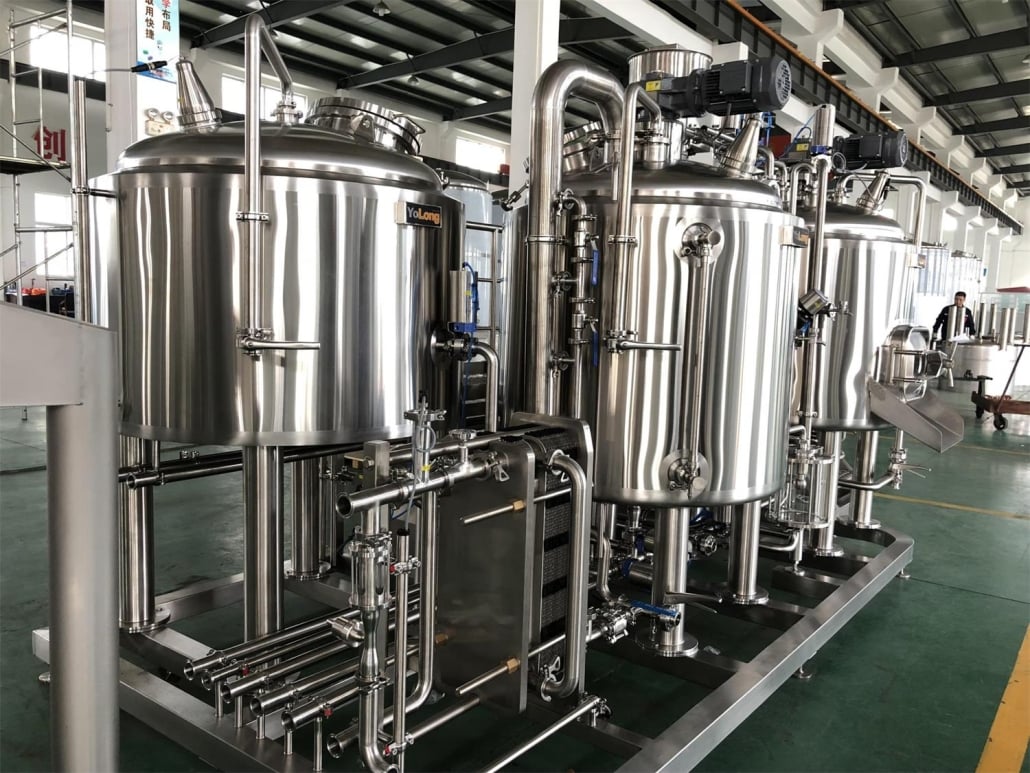
Marketing Strategies for Success
To thrive in the craft beer industry, effective marketing is non-negotiable and in this section, we’ll delve into some proven marketing strategies that will set your micro brewery up for success.
Tapping into the Craft Beer Community
The craft beer community is a vibrant and enthusiastic group of consumers. Engaging with them can yield excellent results for your brewery. We’ll discuss how to participate in beer festivals, collaborate with other local breweries, and organize tasting events to create a loyal customer base.
Utilizing Social Media and Digital Marketing
In today’s digital age, having a strong online presence is crucial. We’ll explore how to leverage social media platforms like Instagram, Facebook, and Twitter to connect with your audience and build brand awareness. Additionally, we’ll touch on the importance of a user-friendly website and the benefits of online advertising.
Collaborations and Events
Collaborating with other businesses or hosting events can be a game-changer for your micro brewery. We’ll look at the potential of teaming up with local restaurants, hosting beer-themed events, and participating in community activities to boost your brewery’s visibility.
Managing Operations Efficiently
Efficiency in operations is essential for the long-term success of your micro brewery. Let’s explore some best practices to streamline your brewery’s day-to-day activities.
Inventory and Supply Chain Management
Maintaining a well-managed inventory and supply chain is crucial for smooth operations. We’ll discuss inventory management tools and techniques to optimize your brewery’s efficiency.
Customer Service and Experience
Exceptional customer service can leave a lasting impression on your patrons. We’ll highlight the importance of providing top-notch service and creating a memorable customer experience.
Staff Retention and Training
Your brewery’s success relies on the skills and dedication of your staff. Learn how to keep your team motivated and continuously improve their brewing skills through training and development.
Handling Peak Seasons and Demand Fluctuations
Seasonal demands can pose challenges for micro breweries. We’ll provide insights into managing peak seasons, demand fluctuations, and preventing inventory shortages.
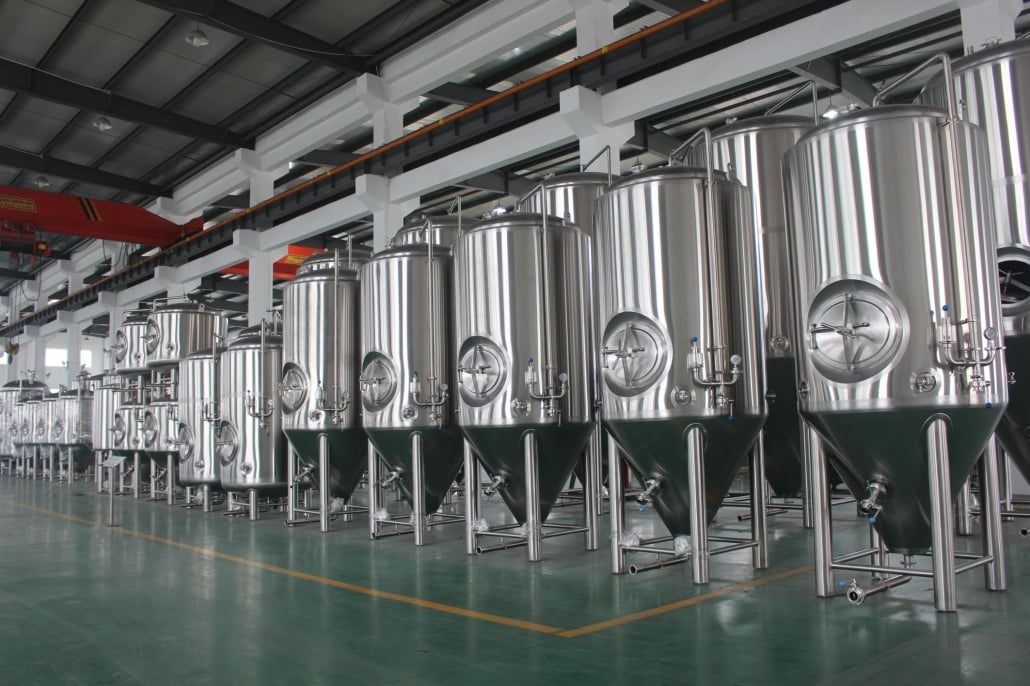
Embracing Sustainability in Your Micro Brewery
Incorporating sustainable practices can benefit both the environment and your brewery’s reputation. Let’s explore how to make your micro brewery more eco-friendly.
Eco-Friendly Brewing Practices
Discover eco-conscious brewing techniques and technologies that reduce water and energy consumption, minimize waste, and promote sustainable beer production.
Waste Management and Recycling
Waste management is essential for reducing your brewery’s environmental impact. We’ll explore recycling options, organic waste management, and ways to repurpose brewing by-products.
Engaging the Local Community
Being an active participant in your local community can enhance your brewery’s image and foster strong relationships with customers. We’ll discuss community engagement initiatives that align with your sustainability goals.
Success Stories: Inspiring Micro Brewery Startups
Let’s draw inspiration from successful micro brewery startups that have made a mark in the craft beer industry.
Case Study 1: From Homebrewing to Commercial Success
Explore the journey of a micro brewery that started as a homebrewing hobby and transformed into a thriving commercial venture.
Case Study 2: From Garage to National Recognition
Learn how a small micro brewery’s dedication to quality and innovation catapulted them to national acclaim.
Case Study 3: The Collaborative Micro Brewery
Discover how a micro brewery achieved success through strategic collaborations with local businesses and artists.
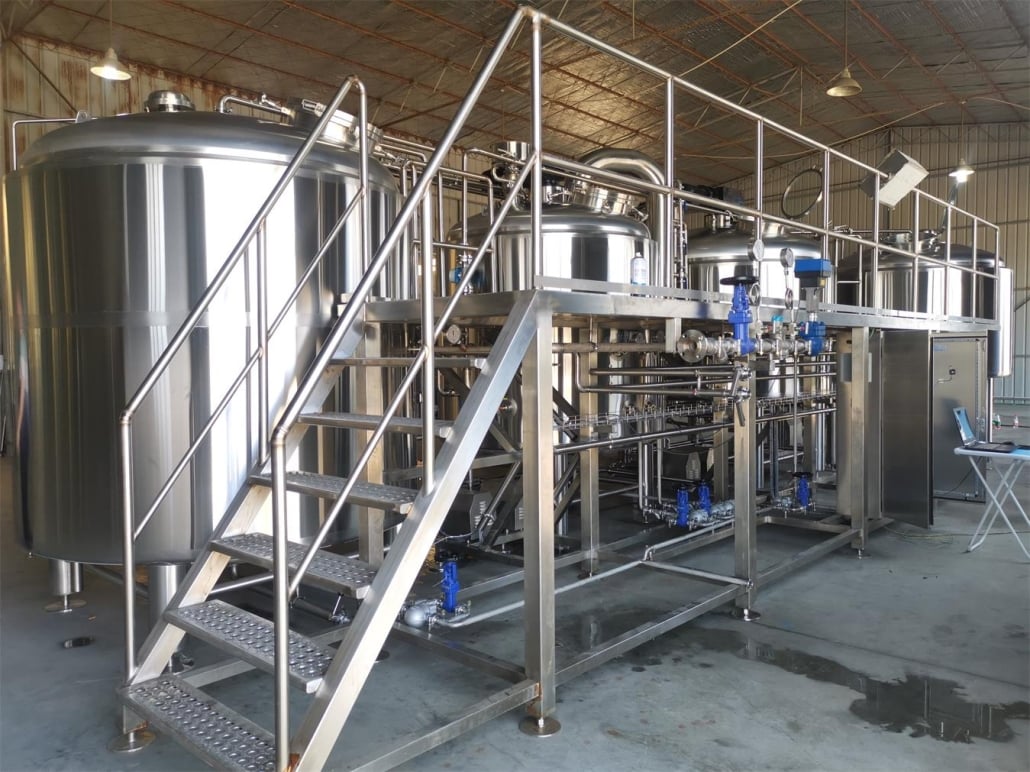
Conclusion
In conclusion, starting a micro brewery can be a fulfilling and rewarding venture for beer enthusiasts. By understanding the essential components, calculating startup costs, and implementing effective marketing and operational strategies, you can turn your passion for brewing into a successful business. Embrace sustainability, engage with the craft beer community, and continuously strive for quality to stand out in the competitive craft beer market.
FAQs
1. How much does it cost to start a micro brewery?
Starting a micro brewery can cost anywhere from a few thousand dollars to several hundred thousand dollars, depending on various factors like location, equipment, and scale of operations.
2. Do I need brewing experience to start a micro brewery?
While brewing experience can be beneficial, it’s not a strict requirement. Passion, dedication, and a willingness to learn are equally crucial for success.
3. How long does it take to break even in a micro brewery business?
The time it takes to break even varies, but it can typically range from a few months to a couple of years, depending on factors like location, market demand, and operating expenses.
4. Can I sell my beer directly to consumers from the micro brewery?
In many regions, micro breweries can sell beer directly to consumers from their premises. However, there might be specific licensing and legal requirements to fulfill.
5. What sets micro breweries apart from commercial breweries?
Micro breweries focus on small-batch, handcrafted beers with unique flavors and styles. They often emphasize quality, innovation, and community engagement, setting them apart from mass-produced commercial breweries.
Frequently Asked Questions (FAQ)
1) What is a realistic budget range for a micro brewery startup in 2025?
- Taproom-first nano/micro: $250k–$750k. Production-focused micro with canning: $750k–$2.0M+. Wide variance driven by leasehold improvements, utilities, and automation.
2) How much of my micro brewery startup cost should go to the brewhouse and cellar?
- Typically 35–55% of CAPEX, including brewhouse, FVs/BBTs, glycol, CIP, and utilities. Tenant improvements (drains, power, ventilation) often rival equipment spend.
3) What ongoing working capital should I reserve beyond build-out?
- Plan 3–6 months of OPEX: payroll, rent, utilities, ingredients, packaging, and excise tax. Many micros allocate $75k–$250k as a runway buffer.
4) Is contract brewing a viable path to reduce startup cost?
- Yes. Contracting initial volumes lowers CAPEX and validates demand. Use it to build brand and cash flow while permitting and construction complete.
5) Which cost line items are most underestimated?
- Floor drains and trenching, electrical service upgrades, steam/venting, wastewater pretreatment, ADA code compliance, and contingency (add 10–20%).
2025 Industry Trends: micro brewery startup cost
- Taproom-first economics: draft-heavy sales reduce packaging CAPEX and improve margins.
- Smarter utilities: heat recovery, insulation, and VFDs cut energy cost per bbl 10–18%.
- Modular growth: 5–10 bbl brewhouse paired with 2x capacity unitanks to scale without upsizing brew deck.
- Financing mix: equipment leases, SBA-backed loans, and local incentives stack more often to lower upfront cash.
- Compliance-forward design: early investment in wastewater and CO2 monitoring avoids costly retrofits.
2025 Benchmark Cost Ranges and KPIs
| Line Item | Lean Taproom-First | Mid-Scale Micro | Notes/Sources |
|---|---|---|---|
| Brewhouse + cellar (5–15 bbl) | $150k–$450k | $400k–$1.1M | BA vendor quotes |
| Tenant improvements (drains, power, HVAC) | $60k–$250k | $200k–$600k | Contractor bids |
| Glycol, steam/heat, ventilation | $25k–$120k | $80k–$250k | Scale/heat source dependent |
| QA/packaging (basic draft vs. can line) | $5k–$40k | $150k–$600k | Can line adds sharply |
| Licenses/permits/fees | $5k–$25k | $10k–$60k | Jurisdictional |
| Working capital (3–6 months) | $75k–$150k | $150k–$300k | Payroll, COGS, tax |
| Typical brewhouse turns/week (steady state) | 2–4 | 4–7 | BA benchmarks |
| Gross margin (taproom draft) | 65–75% | 65–75% | BA small brewery data |
References:
- Brewers Association (BA) benchmarking and start-up resources: https://www.brewersassociation.org
- SBA financing overview: https://www.sba.gov
- Master Brewers Association of the Americas (MBAA): https://www.mbaa.com
Latest Research Cases
Case Study 1: Taproom-First Build Reduces Payback (2025)
Background: New micro pursued neighborhood taproom model to limit packaging CAPEX.
Solution: Installed 7 bbl brewhouse with 2 x 15 bbl unitanks, draft-only launch, heat recovery to HLT, and basic QA kit.
Results: All-in CAPEX $590k; energy/bbl reduced 14% vs. initial plan; break-even achieved in month 11 with 72% sales from taproom draft.
Case Study 2: Phased CAPEX via Contract Brewing (2024)
Background: Team lacked funds for full build-out and needed market validation.
Solution: Contract-brewed 40 bbl/month for 9 months; secured distribution and data to finalize location; staged equipment lease for 10 bbl system.
Results: Reduced initial cash need by ~$400k; faster permitting; smoother investor close with proven demand and signed accounts.
Expert Opinions
- Bart Watson, Chief Economist, Brewers Association
Key viewpoint: “Align capacity and SKU count with your primary channel. Taproom-heavy models de-risk startup cost and shorten time to cash flow.” - Ashton Lewis, Brewing Scientist and MBAA contributor
Key viewpoint: “Budget realistically for utilities and cleanability—drains, glycol, steam, and CIP. These ‘invisible’ costs protect quality and uptime.” - Maria Pearman, CPA and beverage industry finance author
Key viewpoint: “Carry adequate working capital. Under-capitalization—not demand—is the leading cause of early-stage brewery distress.”
Practical Tools/Resources
- Brewers Association start-up and benchmarking tools: https://www.brewersassociation.org
- SBA 7(a) and 504 loan programs: https://www.sba.gov
- DSIRE database for energy incentives (US): https://www.dsireusa.org
- MBAA Technical Quarterly (utilities, QA, CIP): https://www.mbaa.com
- Basic brewery financial model templates (capex/opex, COGS/margin): SCORE and local SBDCs
SEO note: Internally link to “micro brewery startup,” “taproom-first model,” “equipment financing,” “brewery utilities and drains,” and “heat recovery in breweries.”
Last updated: 2025-08-28
Changelog: Added 5 FAQs; 2025 cost benchmarks table; two startup case studies; expert viewpoints; and finance/utility resources for micro brewery startup planning
Next review date & triggers: 2026-02-01 or earlier if BA releases updated cost benchmarks, SBA lending terms change, or utility/construction costs shift significantly
Share this entry
Interested in learning more about Brewing Systems including additional details and pricing information? Please use the form below to contact us!
YOLONG BREWERY EQUIPMENT FAQS
- Commercial Brewery / Craft Brewery / Microbrewery / Nanobrewery
- What is The Difference Between Craft Beer and Industrial Beer?
- The Bespoke Differences In Custom Brewing Systems
- Everything You Need to Know About Kettle Souring
- How to Choose Brewing Equipment for Your business?
- How To Choose The-Best Partner To Build Your Commercial Microbrewing System?
- Two Detection Sensors That You Need To Use In Your Brewhouse System
- Remote Control Applications in Brewing Equipment/How does it work?
- How To Clean Your Brand New Brewery Tanks?

